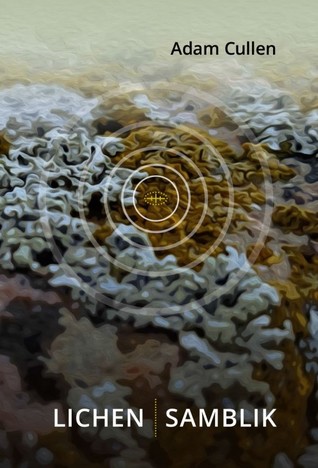Olemas olla (täiendatav)
Oleks mul auto,
oleks meil aeg:
ma viiksin sind
esmalt praamile
ja siis
üle vee
saarele.
Oleks meil vaid saar.
Oleks mul raha,
oleks mul jõud,
ma tõstaks sind
üle hapra pilvede lae
ja võluksin
juttudega seiklustest
mis pärinevad
ookeanitagusilt mailt.
Oleks meil vaid mägi.
Oleks mul julgust,
ma naerataks sulle.
Aga seda mul on.
Jah, seda mul
võib isegi
olla.
Oleks mul auto,
oleks meil aeg:
ma viiksin sind
esmalt praamile
ja siis
üle vee
saarele.
Oleks meil vaid saar.
Oleks mul raha,
oleks mul jõud,
ma tõstaks sind
üle hapra pilvede lae
ja võluksin
juttudega seiklustest
mis pärinevad
ookeanitagusilt mailt.
Oleks meil vaid mägi.
Oleks mul julgust,
ma naerataks sulle.
Aga seda mul on.
Jah, seda mul
võib isegi
olla.
To Have (supplementable)
If I had a car,
if we had time,
I’d take you
first to a ferry
and then
over sea,
island-bound.
If only we had an island.
If I had money,
if I had strength,
I’d lift you
above brittle cloud-cover
and transfix you
with tales of adventures
set in lands
beyond oceans.
If only we had a mountain.
If I had courage,
I’d smile at you.
But that I do have.
Yes, that
I just might
have.
If I had a car,
if we had time,
I’d take you
first to a ferry
and then
over sea,
island-bound.
If only we had an island.
If I had money,
if I had strength,
I’d lift you
above brittle cloud-cover
and transfix you
with tales of adventures
set in lands
beyond oceans.
If only we had a mountain.
If I had courage,
I’d smile at you.
But that I do have.
Yes, that
I just might
have.
Hingepelg merel,
iidsete aegade laulud
kumisevad
kõrvus sel
ajastul,
mis oli siis ja mis on
nüüd.
Kas joiu
lained
liigutavad poid?
Sõnulseletamatud sügavused
seavad nei sõnule.
iidsete aegade laulud
kumisevad
kõrvus sel
ajastul,
mis oli siis ja mis on
nüüd.
Kas joiu
lained
liigutavad poid?
Sõnulseletamatud sügavused
seavad nei sõnule.
Solace on the sea,
songs of distant ages
ringing
in ears in this
time,
which is then and which is
now.
Do the waves of
yoik
stir the buoys?
Depths untold
hold them to their word.
songs of distant ages
ringing
in ears in this
time,
which is then and which is
now.
Do the waves of
yoik
stir the buoys?
Depths untold
hold them to their word.
liivad
Liiva kiri,
hoovus ja lained tõõtavad
kooskõlas, sünkroonis,
ja viimase kui rahnu all
üks teine, veelgi väiksem –
keerlev soolveest ja liivast koosnev
mikrokõiksus
mida silmad eal ei teravda.
Aga kus oleme meie ses
ääretus vaakumis,
kus on aeg, ruum, ja
vaikus, mis murtud vaid
rahutuist ohkeist ning
hõõrduvast liivast?
Igal pool, muidugi.
Liiva kiri,
hoovus ja lained tõõtavad
kooskõlas, sünkroonis,
ja viimase kui rahnu all
üks teine, veelgi väiksem –
keerlev soolveest ja liivast koosnev
mikrokõiksus
mida silmad eal ei teravda.
Aga kus oleme meie ses
ääretus vaakumis,
kus on aeg, ruum, ja
vaikus, mis murtud vaid
rahutuist ohkeist ning
hõõrduvast liivast?
Igal pool, muidugi.
sands
The rippling of sand,
currents and waves working
in harmony, in sync,
and under each of those
singular small boulders yet another –
a swirling microcosm of
salt-water and sand
on which eyes will never focus.
So, where are we in this
vast vacuum of
time, space, and
silence, broken only by
restless sighs
and swooshing sandscrape?
Everywhere, of course.
The rippling of sand,
currents and waves working
in harmony, in sync,
and under each of those
singular small boulders yet another –
a swirling microcosm of
salt-water and sand
on which eyes will never focus.
So, where are we in this
vast vacuum of
time, space, and
silence, broken only by
restless sighs
and swooshing sandscrape?
Everywhere, of course.
Estonian haiku in English
In 2010, Estonian poets Asko Künnap, Jürgen Rooste and Karl Martin Sinijärv committed a beautiful act of sacrilege, adapting the traditional haiku form (5-7-5) to a briefer version better suited to the rhythm and more laconic nature of the Estonian language: 4-6-4. The poetic opportunities enabled by the new form are exhilarating, and have already seeped into multiple other languages by way of translation and original writing. Estonian-Finnish translator and poet Hannu Oittinen, for instance, published the original Finnish-language Estonian haiku collection Assamallan asemalla in 2012.
snow glides softly
afterglow of eighty
steam upward bound
winds whip away
the tears that they draw like
water from wells
islands approach
lanterns on lighthouses
pin them in place
In 2010, Estonian poets Asko Künnap, Jürgen Rooste and Karl Martin Sinijärv committed a beautiful act of sacrilege, adapting the traditional haiku form (5-7-5) to a briefer version better suited to the rhythm and more laconic nature of the Estonian language: 4-6-4. The poetic opportunities enabled by the new form are exhilarating, and have already seeped into multiple other languages by way of translation and original writing. Estonian-Finnish translator and poet Hannu Oittinen, for instance, published the original Finnish-language Estonian haiku collection Assamallan asemalla in 2012.
snow glides softly
afterglow of eighty
steam upward bound
winds whip away
the tears that they draw like
water from wells
islands approach
lanterns on lighthouses
pin them in place
Lichen is available now from Näo Kirik publishers
Like what Deep Baltic does? Please consider making a monthly donation – help support our writers and in-depth coverage of Estonia, Latvia and Lithuania. Find out more at our Patreon page.

